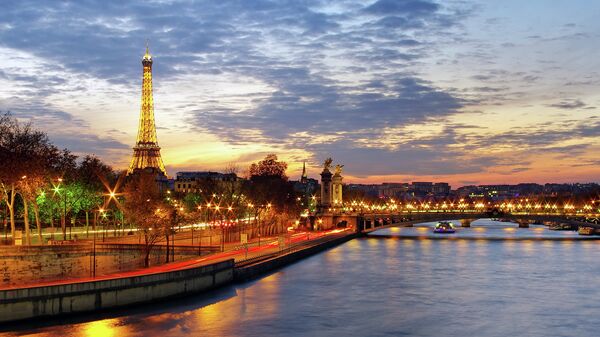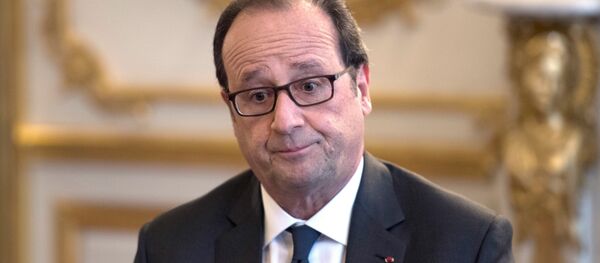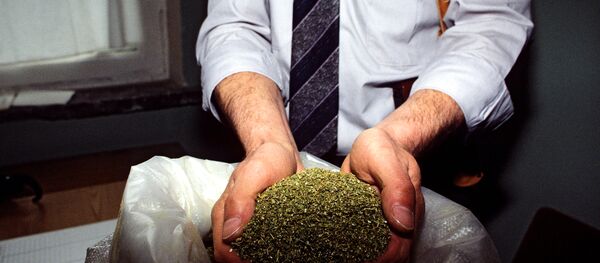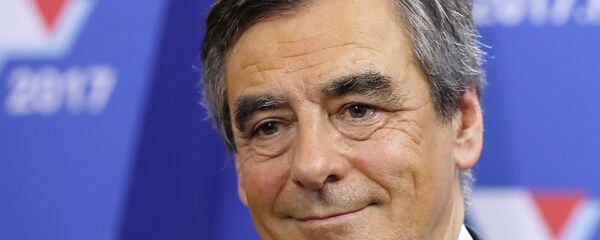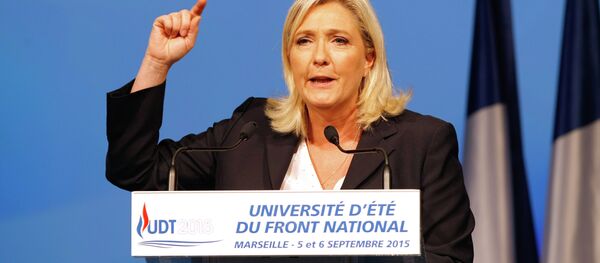MOSCOW (Sputnik) — While the majority of candidates showed unity on the issue of education being the next leader's priority, and expressed more or less similar cautious attitude toward the incoming US presidential administration, the participants of the debates clashed on France's migration policies as well on the issue of cannabis' legalization.
ALL AGAINST VALLS IN MIGRATION RHETORIC
From the very beginning, journalists leading the debates said that "punchlines were welcomed this evening", prompting candidates to be more active in contesting rivals' ideas and frequently addressing the politicians with controversial questions.
The call was well heard when migration issue became the focus of the debates, giving the candidates an opportunity to attack Valls over the issue..
Valls, who until recently headed the French government and has gained the fame of being "too right within the left camp" for his pro-business line and a tough stance on migrants, stated that "France was right to carry out policy on limiting migrants," suggesting that the whole Schengen area would be affected unless Europe, including France, does not defend its borders.
Vincent Peillon expressed his "deep disagreement" with Valls on this issue "which marked this five-year period."
"I feel that the French were more generous than their leaders," Peillon said, in a reference to some 5,000 refugees welcomed by France, a number which is far from the 30,000 promised to be taken in accordance to Paris commitments under an EU internal migrant quota deal.
Hamon suggested that France ought to be able to take in more migrants, proposing an introduction of a "humanitarian visa", while Montebourg welcomed the 1,000 city mayors who had volunteered to receive refugees in their cities.
"This state of mind in our country is powerful," the latter politician claimed.
WHAT TRUMP MEANS FOR FRANCE
When the discussion switched from migrants to US president-elect Donald Trump, the majority of candidates suggested that French foreign policy should become more independent from the United States.
"I will tell Donald Trump that we have an independent policy, despite our alliances, despite NATO," stated Montebourg, arguing that with Trump in the US the EU needs better European defense. Meanwhile, Hamon mentioned that Trump's arrival at the White House was an "element of instability", adding that it also "gives us an opportunity" to propose to France's partners to strengthen cooperation in defense, as NATO led by Trump would no longer be enough to ensure Europe's security, according to the candidate.
"I want to remind Donald Trump that we are going to discuss the Iranian nuclear issue, NATO, European defense and the implementation of Cop 21 [Paris deal on climate change, which Trump has threatened to quit]," the former prime-minister asserted, adding that if Trump back-steps on previous US commitments, "we will have to deal with sanctions".
Ecologist Party's Francois de Rugy also suggested Paris must take "measures of retaliation" if Washington refuses to abide by the climate deal.
Bennahmias mentioned that "our country must be in dialogue with President Trump and [Russian President [Vladimir] Putin," but fell short of expressing any concrete opinion on the US new leader, only saying that France would have to "do with him", while Peillon evoked some disorder dominating the world after the election of Trump.
DISAGREEMENT OVER CANNABIS
While Valls rejected the legalization of the cannabis, as well as decriminalization of its use, because "it is necessary to prohibit", a statement partly supported by Montebourg, two other contenders — namely Hamon and Pinel — on the contrary called for the legalization of the drug and its distribution though pharmacies to "drain" illegal sales.
At the same time, de Rugy compared cannabis to tobacco and alcohol, which would be impossible to prohibit today. Jean-Luc Bennahmias advocated a "controlled legalization" with Peillon proposing to hold a national debate on the issue.
NUCLEAR ISSUES AND EDUCATION
The issue of education, on the contrary, revealed rare unity among the candidates, with each stressing the need to focus more and invest more in the sphere of education, with two former education ministers Peillon and Hamon, as well as Valls, all stressing achievements in the past five years in schools' and universities' development.
NO CLEAR FAVORITE AMID NO VIVID INTEREST IN DEBATES
Right after the debates' end, the Elabe pollster asked French on their opinion, demonstrating that 29 percent found Montebourg "more convincing" than Valls, who sounded better for 26 percent of respondents. But a separate poll that measured opinion only among the left-wing voters, gave the advantage to Hamon, with 30 percent of the vote, as compared to 28 percent for the former prime-minister.
The last debate among all seven candidates will be broadcast Thursday, ahead of first round of primaries set for Sunday, with the last debate turning into a duel between the two frontrunners a day before the final round of the Socialist primaries are held on January 29.
The candidate who wins the primaries will represent the Socialist party at the presidential elections in April, however polls predicts the French political left as has zero chances even to make it to the second round of the elections, with far-right National Front leader Marine Le Pen and The Republicans' candidate Francois Fillon expected to lead. According to polls, any Socialist candidate will lag behind ex-Economy Minister Emmanuel Macron, and leftist Jean-Luc Melenchon, both running as independents.
